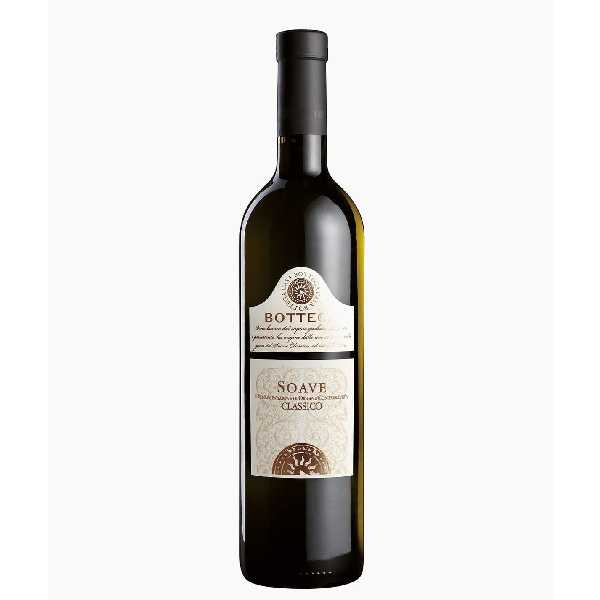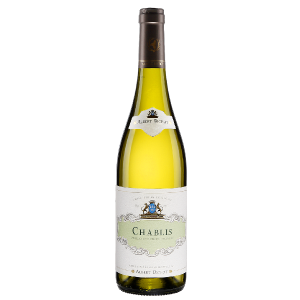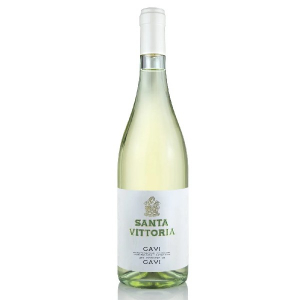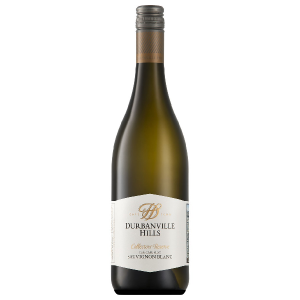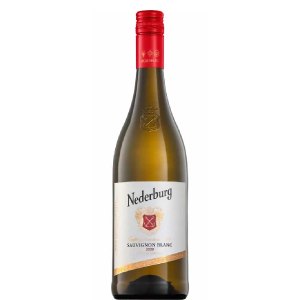View cart “NEDERBURG MANOR HOUSE SAUVIGNON BLANC” has been added to your cart.
Bottega Soave Classico – 2020
KES4,790
Soave wine is named after the homonymous town founded by the Lombards, also known as Suaves. It is among the first Italian wines for which production area has been limited by a decree, in 1931, and is also the first DOC recognized in Veneto, when DOC “Soave Superiore” was acknowledged. The indication “Classico” is a privilege of Soave produced in the “classical”, original, most ancient area, i.e. the hills of Soave and Monteforte.
Category: White
Related Products
-
Albert Bichot Petit Chablis
KES3,800KES3,610A White wine from Petit Chablis, Bourgogne, France. This highly refreshing wine features notes of apple, lemon and pleasing minerality. Grape…
-
Santa Vittoria Gavi 2019
KES6,210This is a white wine with personality, which resolutely defends its characteristics against the perils of time, allowing it to maintain the highest quality for several seasons.
Straw-yellow with greenish highlights, it has an ample nose, with an intense bouquet featuring flowers, vanilla, lemon, lily of the valley and bitter apples. Its nicely
dry taste is full, well-balanced and elegant.Considered to be one of the greatest Piedmontese white wines, Gavi di Gavi represents the essence of the Cortese grape, cultivated in the Monferrato area, on the border with Liguria. Here, the winds that blow in from the sea enable the creation of a wine that is always crisp, with pleasant, almost salty, mineral notes, perfect for aperitifs or to pair with fish.
-
DURBANVILLE HILLS COLLECTORS SAUVIGNON BLANC
KES3,050Inspired by Cape Town’s radiant energy and creative demeanour, our new premium offering – The Collector’s Reserve – is a unique range specially crafted by our winemakers using only the finest grapes from Cape Town’s best vineyards.
The Cape Mist is a natural phenomenon in Cape Town, stealthily moving in as a cool Atlantic breeze over Table Bay. The mist provides a soft blanket over the surrounding slopes and creates the perfect cool climate conditions associated with the Durbanville terroir. These conditions are crucial in creating the perfect environment to grow Sauvignon Blanc, renowned for its abundant and lingering tropical fruit flavours and balanced freshness.
-
NEDERBURG SAUVIGNON BLANC
KES1,420The grapes were sourced from top-performing vineyards situated in the Darling, Cape Town and Ceres districts, all cool climate winegrowing areas with the benefit of slower ripening of the grapes to achieve greater flavour intensity. The vines are grown in granite and sandstone soils, resulting in grapes with a zestier and higher natural acidity, which adds to the freshness and longevity of the wine. Open vineyard canopies bring about greater sunlight penetration of the grape bunches, contributing to more balanced acidity, in turn making the wine deliciously palatable.
Colour Crisp with a touch of lime green.
Bouquet Aromas of a highveld thunderstorm and flinty, grassy smell with zingy lemon and granadilla notes.
Palate Dusty flint with lemon zest and marmalade flavours can be found on a balanced, refreshing palate. Vivacious acidity is poised by juicy fruit nuances with some granadilla and tropical notes noticeable.

